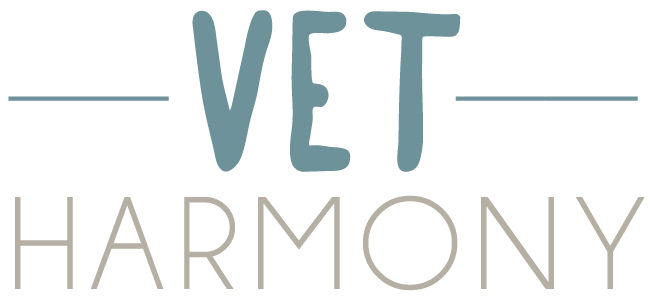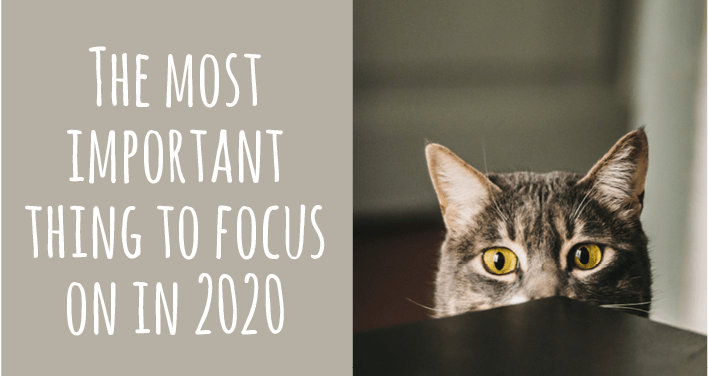I hope you are well and settling back into routine as we get to the end of the first ‘proper’ week post New Year.
It’s been a complete whirlwind for me these last couple of weeks! I’d like to extend a very warm welcome to all the newcomers to the Vet Harmony Community that have joined us via the Masterclass webinar that I ran last week!
This week I’ve been collating and reading the preparation questionnaires for my new group coaching clan who are coming on board on 28th January.
One of the questions on there is, “What are your biggest current limiting beliefs or mindset challenges?”
Almost across the board the answers have involved some level of lack of self-belief.
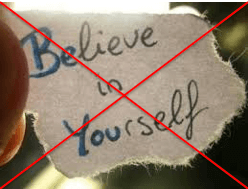
It’s manifesting in all sorts of ways – poor sense of self-worth, constantly comparing self to others, lack of confidence, anxiety, perfectionism and fear of failure just to name a few.
The root cause is that pervasive and unhelpful imposter-syndrome feeling of ‘not good enough’, combined with basing our self-view on how well we’re performing externally in life.
It put me in a reflective mood as I have been busy planning how best to serve those who’ve signed up from within the course framework.
I started thinking about what has helped me most with my career decision making and finding the right niche for me personally over the last 11 years since stepping onto the diversification pathway.
Without a doubt, the biggest thing BY FAR that’s moved the needle on my overall level of happiness and feeling ‘enough’ is the self-worth work I’ve been getting from a top-level mindset coach.
Better than any CPD or training course.
Better than any official registered qualification.
Better than just gaining time and expertise under my belt in my chosen field.
HANDS DOWN!!!
It’s taken 7 months of intense work and £3k of investment to do it. The result has been a significant and major increase in really being able to connect with that sense of what the feck “I am enough” actually means when applied to the self, and really embodying it.
Finally feeling it and knowing it about myself.
About all of us in fact, as this applies to absolutely every human.
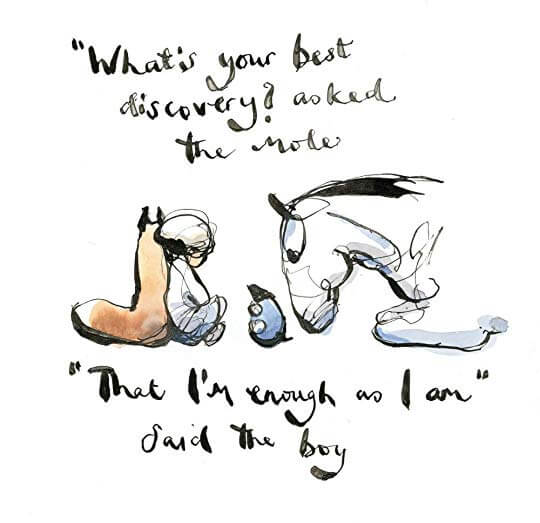
The biggest realisation I’ve had about our current individual set-point of where your self-worth is sitting is that it’s a choice we make.
If you want to change the existing neural network you have in your brain that creates the narrative around how worthy you are, you absolutely can, but you need to proactively be reminding yourself to choose new and better thoughts about it on a daily basis and release any old feelings of lack.
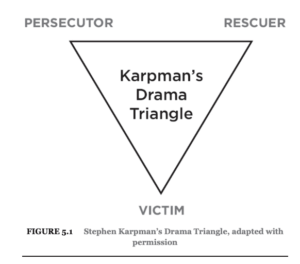
This is Karpman’s drama triangle, reproduced from Fleet Maul’s book, Radical Responsibility.
It’s a great reminder that unless we’re working on our mindset, the natural human tendency is for us at any one point in time to be occupying one of these three personas on the triangle.
With the persecutor, we’re in attack or blame mode, trying to exert our will on someone.
With the rescuer, this isn’t about your genuine helping role as a vet or nurse, this is a persona that is constantly on the lookout for people who are currently victims as the rescuer needs to be needed.
And I think we’re all familiar with feeling in victim mode, and in fact the victim mode is at play behind the persecutor and rescuer roles anyway.
I sometimes feel in my role as parent, that I can cycle between these three several times in the space of one hour after school when Eva is in meltdown mode and I’m tired!
This is natural and not something we need to beat ourselves up about, however none of these three personas are particularly helpful to us.
What DOES help instead, is to shift to accountability and choosing for ourselves instead of just reacting instinctively.
This is where any mindfulness work you’ve done really comes into its own.
The six steps to getting off the triangle are as follows:
1. Recognise you are on a Drama Triangle with the situation/feelings
2. Stop. Don’t act when triggered.
3. Take space and shift your state.
4. Own your feelings.
5. Identify your needs and communicate them clearly when appropriate.
6. Make a boundary when necessary.
If you want to know more about these steps, I would recommend adding the book to your reading/listening list.
These steps would work really well for some of the high-pressure difficult interpersonal situations we find ourselves in at work with clients or colleagues and they also work brilliantly for self-belief.
The POINT here is that much like a point-of-care blood machine in the practice, these things need regular recalibration.
You have to catch yourself in the act of thinking a low self-worth thought, analyse it, decide if it’s helpful and if not then choose again a different perspective that feels more empowering.
THAT’S the mindset work and it needs to be happening in the moment, during your day, with self-compassion and knowing that you can’t get this process ‘wrong’ if you keep at it.
 It’s come into play for me this very week. I’m off to London next weekend for a live business event organised by my mindset coach, Suzy Ashworth. She messaged me this week asking if I would be on her ‘Success Panel’ session.
It’s come into play for me this very week. I’m off to London next weekend for a live business event organised by my mindset coach, Suzy Ashworth. She messaged me this week asking if I would be on her ‘Success Panel’ session.
I felt honoured and elated but instantly the ‘not enough’ gremlin reared its head attempting to tell me messages such as,
“It’s not because you’ve actually done brilliantly, it’s because you were so remedial at the start of your work with her.”
“Your stats and figures look falsely much better than those working in the general population because the vet profession is so small and people know you.” etc.etc.
Instead of paying heed to them, I just observed them non-judgementally, asked myself whether those statements were categorically true or could there be other more positive reasons.
Which perspective would make me feel better about myself and help me to perform better and contribute more when I’m up on stage? Then making a choice to work on letting go of the negative thoughts.
Is this easy? No. Not particularly in the beginning, like anything it takes practice, recognition and drip-feeling yourself with lots of reminders.
It is worth it?
YES.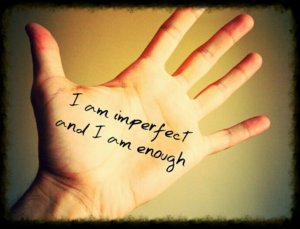
Knowing you are good enough irrespective of your outcomes or what other people think of you is the most liberating feeling I have experienced in years and years, and it is my wish for you to experience this too.
I’m going to be infusing all my newsletters, courses and coaching practice this year with the tools and techniques I’ve learned on this topic.
Right, this has been a long one so if you’re still reading, well done!!
Here’s the replay to the Masterclass about the group coaching course if you’ve still not seen it and are interested – I’d LOVE to have you on board if it resonates with you.
Sign ups close
